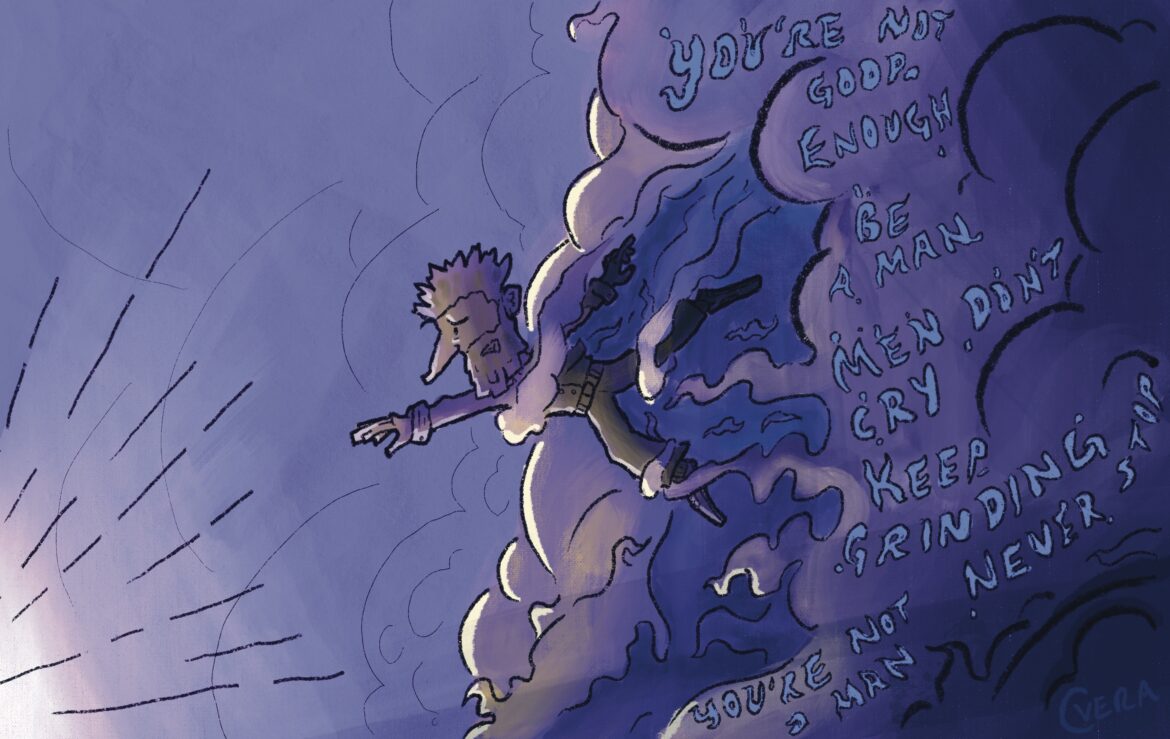I’ve always been the type of person to encourage others to open up and take care of themselves, but yet I’ve always been reluctant to do so, not wanting to take my own advice.
Men have historically hid their battles with mental health due to a large amount of stigma surrounding the issue. There’s this fear that we will be perceived as weak and incapable, that we aren’t “manly” enough or that we should just “toughen up.”
Influencers such as Andrew Tate and others lead many men to believe that if they don’t exhibit certain traits or act a certain way or have certain things, they are failures. This creates self-esteem issues, depression, anxiety and more.
These perceptions have devastating consequences. According to a study done by the Center for Disease Control (CDC), suicide is the second-largest cause of death in males aged 20-24. Substance abuse is also an issue, as a study done by a Yale University psychology professor in 2004 states that “men consistently report stronger motives to drink to escape from or cope with distress than women.”
The toxic masculinity that persists in modern society doesn’t make men stronger like it claims it does. Instead, it hurts them. It destroys their self-worth and prevents them from getting the help they need the most.
I’ve experienced this firsthand. For the longest time, I never wanted to seek help for my issues because I felt I would be a burden to others by expressing my feelings, or that I would be considered “weird” if I went to talk to a professional. I felt like I was less for having those feelings and I started to compare myself to others who I thought were so much better than I was.
If we want things to get better, then we need to change the way we’ve typically dealt with men’s mental health. We’ve already made a lot of progress, but much work needs to be done.
What really needs to change is the way men treat each other. Men need to support men. Too much of the time, we see each other as competitors. In reality, though, we need to be teammates. As corny as it sounds to some, it’s true: we need to stick together.
It took some time for me to come around to the idea of talking to someone and the longer I waited, the more I hurt. I became more isolated and it started to impact all areas of my life.
Fortunately, thanks to people in my life who noticed I was suffering, I was able to go to a psychologist at Counseling and Psychological Services (CAPS), where I was able to discuss how I was feeling.
That experience allowed me to realize that it was OK for me to talk to the people around me about my problems. I began to develop an amazing support system that I rely on to this day and little by little I began to open up. That support system includes men that I know I can trust and be vulnerable with and they know they can do the same for me.
It’s still not easy, by any means. I still hesitate before talking to someone, hoping that I’m not being annoying or forcing someone to listen to something they don’t care about. There’s still that voice in the back of my head that tells me that I’m not as strong as I’m supposed to be.
I don’t think that voice will ever go away, but it’s no longer going to prevent me from getting the help I need. And that’s what I want for all men: to be comfortable enough to open up to whoever is willing to listen. That starts with us.



